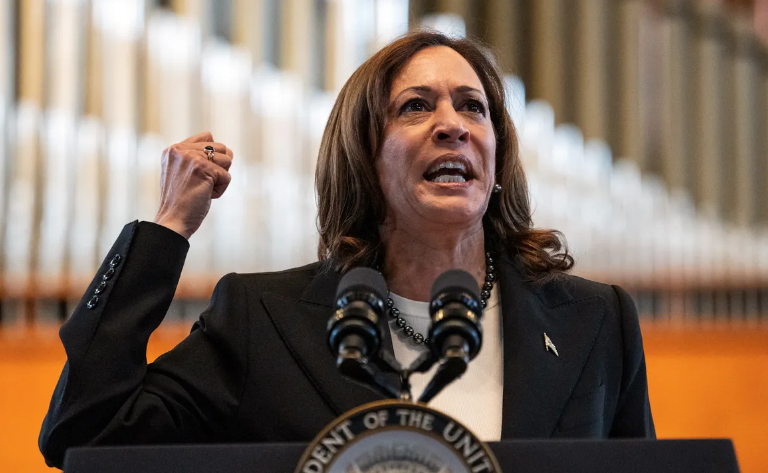Kamala Harris Gives Update On Administration Policy
In a recent interview with ABC News, Vice President Kamala Harris stated that the Biden administration has not ruled out “consequences” for Israel if it chooses to attack Hamas in the southern Gaza city of Rafah. This statement comes after President Joe Biden publicly warned Israel not to attack Hamas in Rafah due to the presence of large numbers of civilians, which the terrorist group uses as human shields.
Israel has been engaged in a military conflict with Hamas for over a week, with both sides exchanging airstrikes and rocket fire. During this time, Israel has targeted Hamas military installations and infrastructure, while Hamas has aimed at Israeli civilians. The situation escalated after Israel carried out an airstrike on a building that housed both media outlets and Hamas offices.
Regarding the situation in Rafah, Harris told ABC News, “I have studied the maps,” indicating that she is aware of the high concentration of civilians in the area. Israel has repeatedly stated that it cannot win the war without eliminating the last four Hamas battalions located in Rafah. However, critics say that Israel’s efforts may be hindered by the United States’ urging to avoid attacking the city.
On Friday, Israeli Prime Minister Benjamin Netanyahu reiterated his government’s stance on entering Rafah during a meeting with U.S. Secretary of State Antony Blinken. He stated that while he would prefer to do so with U.S. support, Israel is prepared to take action alone if necessary. This statement was a response to President Biden’s warning not to attack Rafah, which went against Israel’s plans.
In her interview with ABC News, Harris emphasized that the Biden administration is not ruling out any potential consequences for Israel if it chooses to go against the U.S.’s recommendations. However, she did not specify what these consequences may be. This follows previous statements from Biden’s administration, including a phone call between the President and Netanyahu, in which Biden urged Israel to de-escalate the conflict.
Some have criticized the Biden administration’s stance on Rafah, stating that it plays into Hamas’s strategy of using civilians as human shields. Pro-Israel groups have also raised concerns about the U.S.’s position, arguing that it may weaken Israel’s ability to defend itself and ultimately embolden Hamas.
On the other hand, supporters of the Biden administration’s approach argue that it is necessary to protect civilians and prevent further bloodshed. They also believe that the U.S.’s involvement may help to facilitate a ceasefire between Israel and Hamas, ultimately leading to a long-term solution to the conflict.
Meanwhile, the situation in Gaza continues to worsen, with families displaced, buildings destroyed, and dozens of casualties on both sides.
The United Nations has called for an immediate ceasefire, and the international community is closely monitoring the situation. However, it remains to be seen how the conflict will progress, and whether the U.S.’s stance on Rafah will have any impact on the outcomes of the ongoing war.

